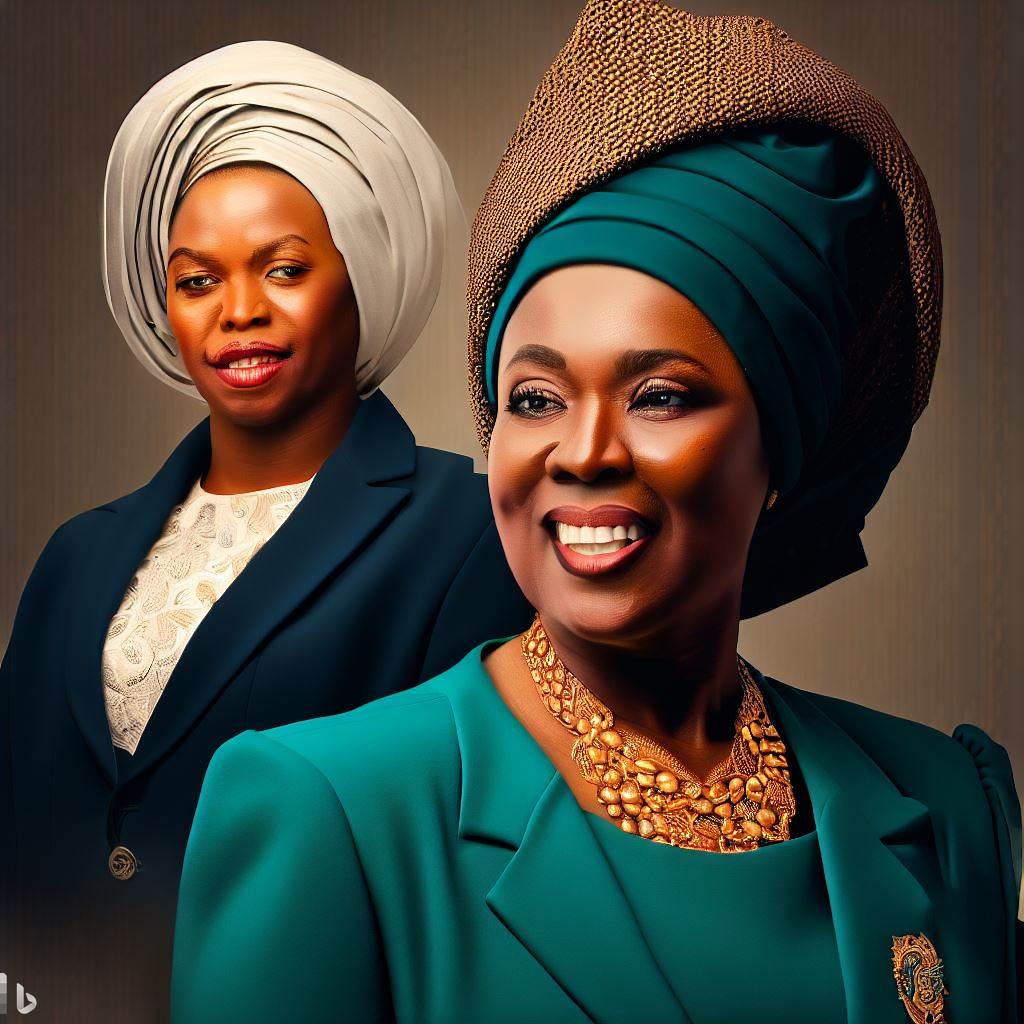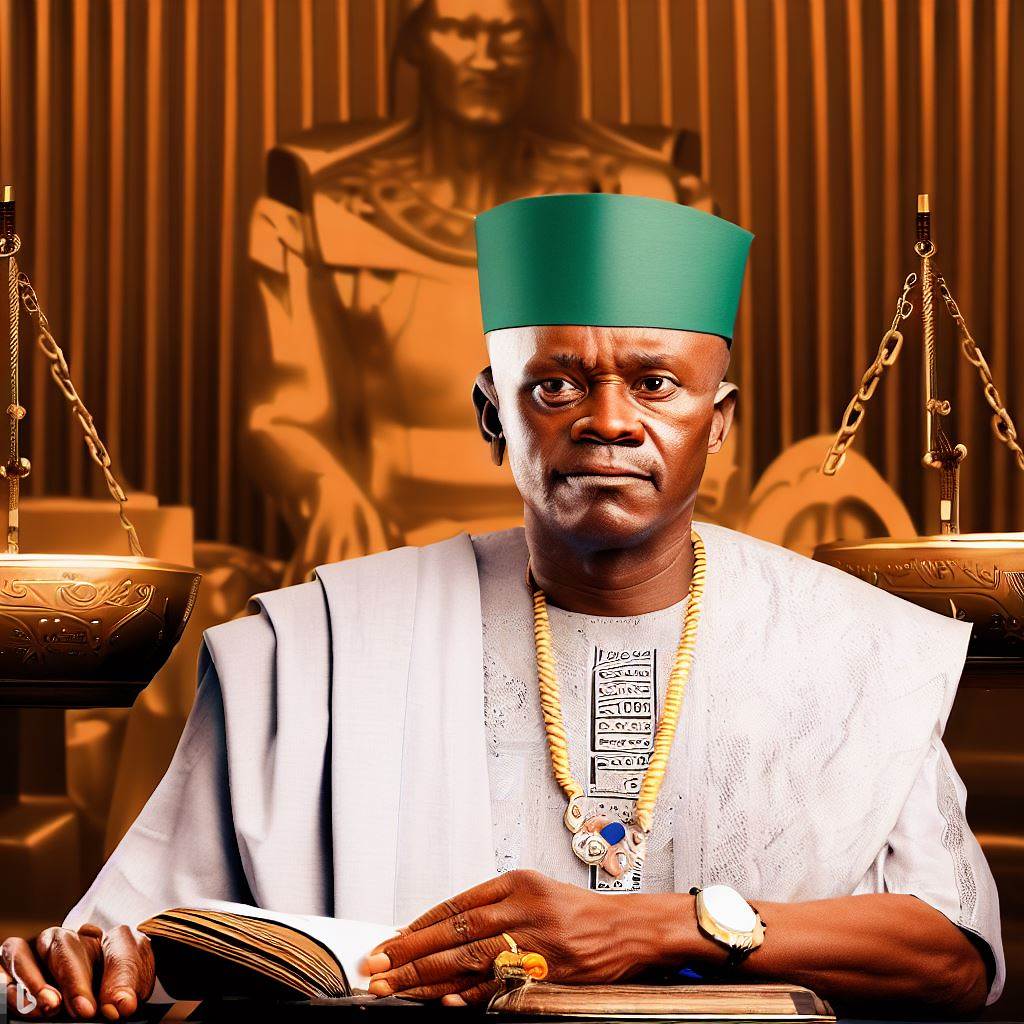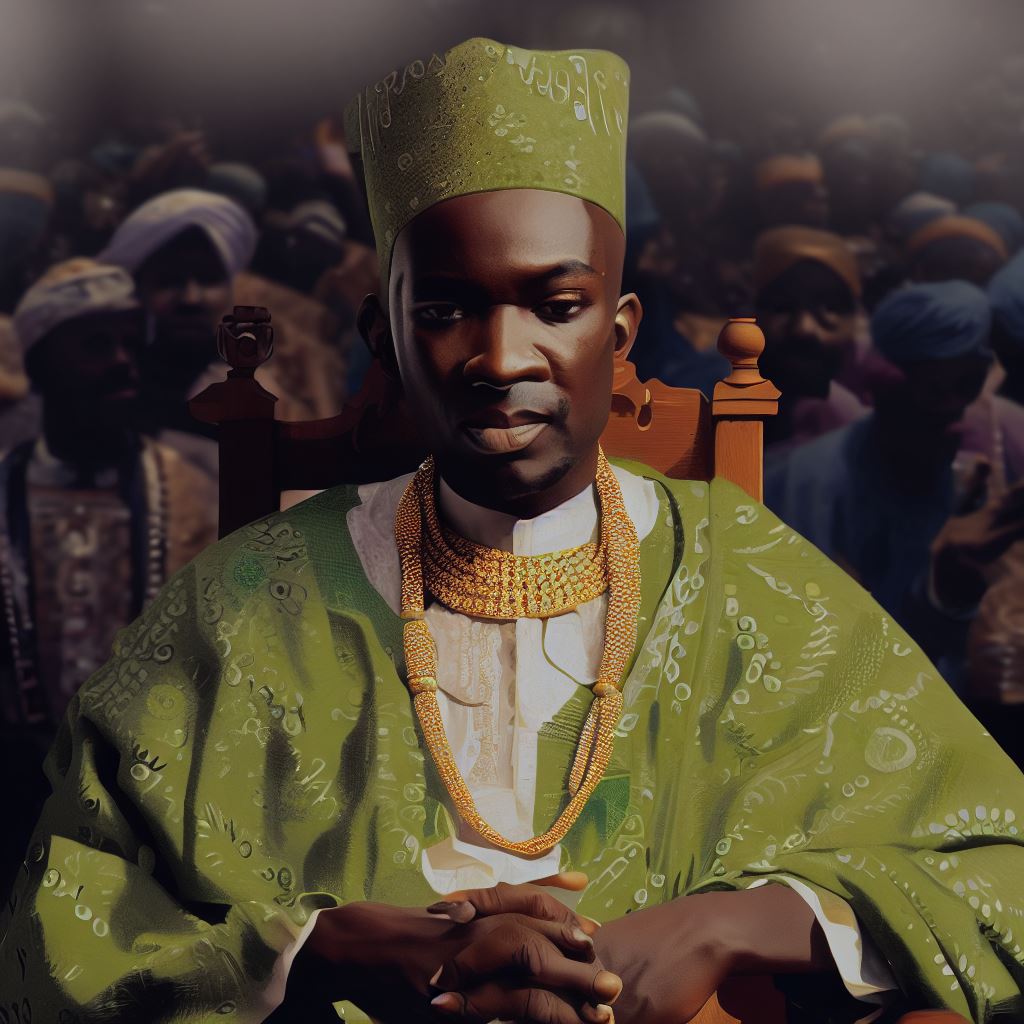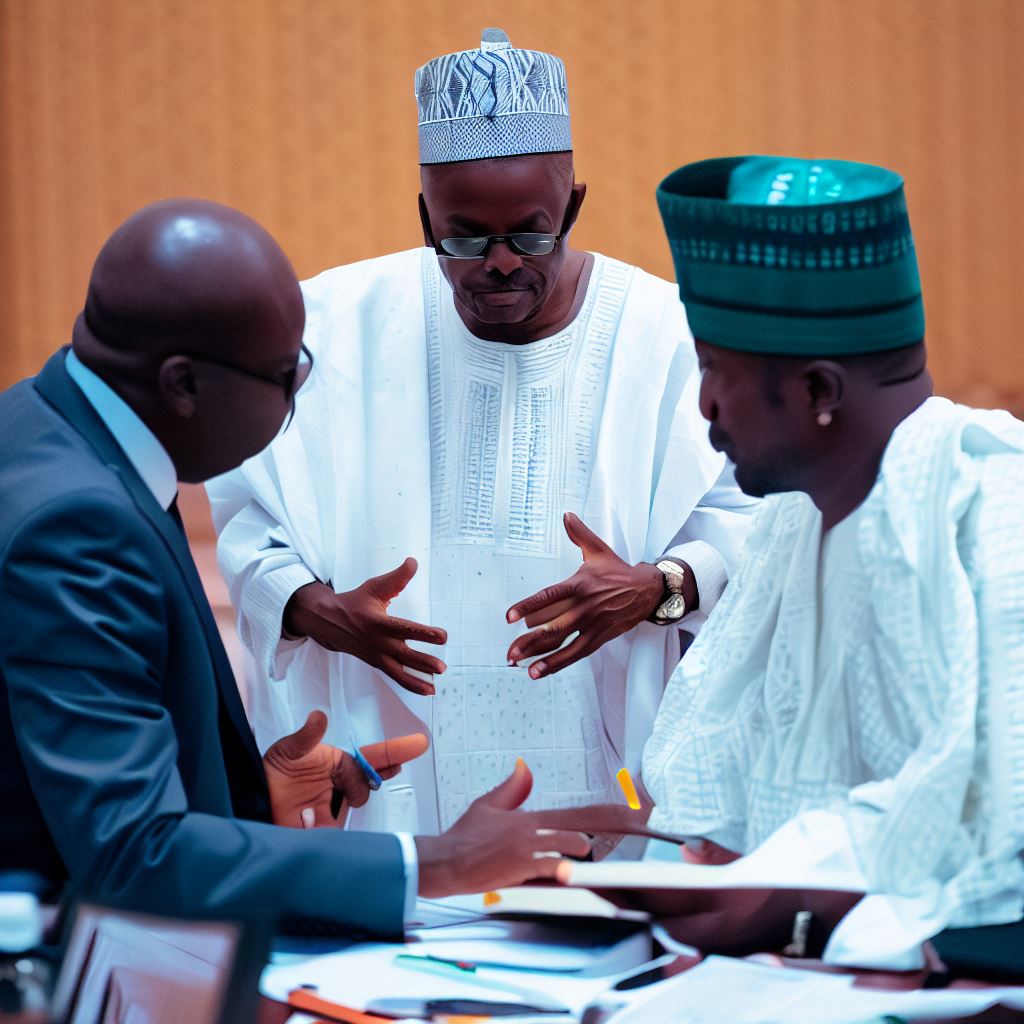Introduction
Nigerian politics plays a pivotal role in shaping the country’s future and governance. This blog post explores Women Breaking Barriers in Nigerian Politics.
However, women have always been underrepresented in Nigerian politics. It is crucial to break barriers and increase women’s participation in politics.
Historical Context
Background on women’s rights movements in Nigeria
- Women’s rights movements in Nigeria have a rich history, dating back to the pre-colonial era.
- These movements aimed to address gender inequalities and fight for women’s political participation and empowerment.
- Organizations like the Aba Women’s Riot of 1929 played a vital role in mobilizing women for political action.
- The Women’s International Democratic Federation and the Nigerian Women’s Party were formed in the 1940s.
- Nigerian women fought for suffrage rights during the struggle for independence from colonial rule.
Early pioneers in Nigerian politics and their contributions
- Funmilayo Ransome-Kuti, a renowned activist, advocated for women’s rights and played a significant role in Nigeria’s political landscape.
- She co-founded the Nigerian Women’s Union and fought against oppressive colonial policies.
- Margaret Ekpo, another pioneer, was the first woman to contest for a seat in the Nigerian parliament in 1954.
- These early pioneers paved the way for women’s involvement in politics, challenging societal norms and stereotypes.
Challenges faced by women in entering politics historically
- Patriarchal societal norms have historically limited women’s political involvement in Nigeria.
- Structural barriers, such as lack of access to education and economic resources, posed challenges for women.
- Discriminatory cultural practices, including gender-based violence and limited decision-making power, hindered women’s progress.
- Political parties were often exclusive, with limited opportunities for women to hold leadership positions.
- Nigerian women faced resistance and skepticism from male counterparts, facing inherent biases and prejudice.
In the end, women’s rights movements in Nigeria have fought tirelessly to break barriers and create opportunities for women in politics.
Early pioneers like Funmilayo Ransome-Kuti and Margaret Ekpo made significant contributions, paving the way for future generations.
However, women have historically encountered numerous challenges, including patriarchal norms, lack of resources, and discrimination.
Despite these obstacles, Nigerian women continue to rise and make their marks in the political landscape, taking on leadership roles and advocating for gender equality.
The fight for women’s political empowerment is ongoing, but the progress made serves as a testament to the resilience and determination of Nigerian women.
Read: Nigerian Political Parties: A Comprehensive Overview
Present Landscape
Statistics on women’s representation in Nigerian politics
- As of 2021, women make up only 6.7% of the Nigerian National Assembly.
- In the 2019 general elections, out of 109 seats in the Senate, only 7 were won by women.
- In the House of Representatives, out of 360 seats, only 11 were won by women.
- These statistics highlight the glaring gender imbalance in Nigerian politics.
- Despite women constituting almost 50% of the population, their political representation remains abysmally low.
- This underrepresentation creates a significant democratic deficit and hampers inclusive policy-making.
Examples of successful women politicians in Nigeria
- Taking into account the challenging political landscape, there have been notable success stories.
- Solid examples of influential Nigerian women in politics include Ngozi Okonjo-Iweala and Dora Akunyili.
- Ngozi Okonjo-Iweala served as the Minister of Finance and Coordinating Minister for the Economy.
- Her expertise helped Nigeria navigate economic challenges and gain international recognition.
- Dora Akunyili, a former Minister of Information and Communication, fought against counterfeit drugs.
- Her efforts led to increased public health awareness and significant improvement in medicine quality control.
The existing barriers preventing women from fully participating in politics
- Pervasive cultural beliefs and norms consider politics as a male-dominated sphere.
- Traditional gender roles and stereotypes limit women’s access to political networks and resources.
- Political parties often exhibit biases against female aspirants, hindering their chances of winning nominations.
- Financial constraints pose a significant barrier, with campaigns requiring substantial funding.
- Violence against women, both physical and verbal, deters them from entering the political arena.
- The lack of inclusive policies, such as gender quotas, further diminishes women’s political representation.
In summary, Nigerian politics continues to struggle with gender imbalance, undermining the principles of representative democracy.
With only 6.7% representation in the National Assembly, women face numerous barriers. However, notable women politicians like Ngozi Okonjo-Iweala and Dora Akunyili have shown that change is possible.
To empower women and encourage their full participation in politics, cultural beliefs, gender biases, financial constraints, and violence against women must be addressed.
Furthermore, implementing inclusive policies and creating a supportive environment will enable women to break barriers and contribute significantly to Nigerian politics.
Read: Challenges and Triumphs: A Nigerian Politician’s Journey
Efforts towards Gender Equality
Government policies and legislation promoting women’s political participation
- Implementation of laws that guarantee women’s rights to participate in politics.
- Creation of gender-sensitive policies that support and encourage women’s involvement in governance.
- Training programs and capacity building initiatives targeted at women leaders.
- Provision of financial support and resources to enable women to actively engage in politics.
Introduction of quotas and affirmative action in Nigerian politics
- Adoption of gender quotas to ensure a minimum percentage representation of women in political positions.
- Enactment of affirmative action measures to provide preferential treatment for women in political appointments.
- Establishment of Women’s Wings within political parties to promote women’s involvement in decision-making processes.
The impact of these efforts on increasing women’s representation in politics
- Increased participation of women in politics due to the implementation of gender-sensitive policies and legislation.
- Higher number of women contesting for and winning political positions as a result of affirmative action measures.
- Enhanced political consciousness among women, leading to active involvement and engagement in political activities.
- Improved representation of women’s interests and concerns in policy-making processes.
- Development of a more gender-balanced and inclusive political landscape in Nigeria.
Overall, the Nigerian government’s policies and legislation have played a crucial role in breaking barriers and promoting gender equality in politics.
The introduction of quotas and affirmative action has further ensured that women have a fair chance to participate and contribute significantly to the political landscape.
These efforts have led to increased representation of women in political positions, allowing for a more diverse and inclusive decision-making process.
However, there is still much work to be done to achieve full gender equality in Nigerian politics.
Continued efforts, such as sustained implementation of gender-sensitive policies and further empowerment of women in political leadership roles, are necessary to bridge the remaining gaps and create a truly equal and inclusive political system.
Read: The Path to Politics: Becoming a Politician in Nigeria
Advocacy and Activism
Women-led organizations campaigning for gender equality in politics
- Women-led organizations play a crucial role in advocating for gender equality in Nigerian politics.
- These organizations tirelessly campaign for equal representation and participation of women in decision-making processes.
- They amplify the voices of women in politics, raise awareness about the challenges they face, and push for policy changes.
- Through their advocacy, these organizations strive to break barriers and create a more inclusive political landscape.
- They organize workshops, seminars, and conferences to educate and empower women interested in politics.
- These organizations also provide mentorship programs to support aspiring female politicians throughout their journey.
- Their efforts contribute significantly to dismantling systemic barriers that hinder women’s political empowerment.
- By working collectively, women-led organizations have successfully influenced public opinion and policy-making.
Success stories and achievements in women’s political empowerment
- Recognizing and celebrating the success stories of women in Nigerian politics inspires future generations.
- These stories provide hope and motivation, showcasing the possibility of breaking barriers and achieving political empowerment.
- Highlighting the achievements of women in politics helps change the narrative around women’s capabilities.
- It challenges stereotypes and encourages more women to actively participate in political activities.
- Success stories create role models for aspiring female politicians, demonstrating that leadership has no gender limitations.
- Appreciating the achievements of women in politics encourages society to recognize their valuable contributions.
- Through these stories, the barriers and discrimination faced by women in Nigerian politics can be further exposed.
- By recognizing success and achievements, women’s political empowerment becomes a shared responsibility.
Importance of supporting and amplifying the voices of women in politics
- Society must actively support and amplify the voices of women in Nigerian politics to achieve true gender equality.
- Women bring unique perspectives and experiences to the table, enriching decision-making processes.
- Supporting women in politics reflects a commitment to a more representative and inclusive democracy.
- Amplifying the voices of women helps bring attention to the issues affecting them and their communities.
- It ensures that policies and legislation cater to the needs and aspirations of all citizens.
- By supporting women in politics, we foster a culture that values gender equality and equal opportunities.
- Women’s political empowerment leads to more effective governance and promotes social progress.
- Through collective efforts, we can create an environment where women’s voices are heard and respected in Nigerian politics.
Read: Nigeria’s Military Strategy in a Changing World: An Analysis

Barriers and Challenges
Deep-rooted cultural and patriarchal norms affecting women’s political participation
- Traditional gender roles assign women to domestic duties, minimizing their involvement in politics.
- Pervasive societal beliefs perpetuate the notion that women are incapable of effective leadership.
- Male-dominated decision-making structures marginalize women and hinder their representation in political arenas.
- Discriminatory cultural practices prioritize men’s voices, further excluding women from political processes.
- Gender-based violence serves as a tool to intimidate and discourage women from engaging in political activities.
- Limited access to education and information restricts women’s understanding of political systems and policies.
- Religious and traditional norms discourage women’s active participation in public affairs.
- Lack of support from family and community due to societal expectations deter women from pursuing political ambitions.
- Inadequate representation of women in the media perpetuates stereotypes and undermines their political aspirations.
- Restrictive gender quotas or absence thereof fail to promote gender equality and hinder women’s political progress.
Socio-economic factors limiting women’s access to political resources
- Persistent economic inequalities make it difficult for women to fund their political campaigns.
- Limited financial resources restrict women’s ability to network, gather support, and mobilize voters.
- Women often face challenges in balancing familial responsibilities with political engagement due to inadequate support systems.
- Unequal distribution of resources and development projects disproportionately affect women, hindering their political influence.
- Limited access to technology and internet inhibits women’s outreach and engagement with the electorate.
- Prevalence of corruption and bribery in politics creates barriers for women who may lack the necessary financial means.
- Unequal access to political networks and connections limits women’s opportunities for political advancement.
- Lack of affordable and reliable childcare options makes it challenging for women to dedicate time to political activities.
- Insufficient representation of women in economic sectors hampers their ability to gain financial independence necessary for political participation.
- Limited availability of political training and mentorship programs impedes women’s capacity-building efforts.
Identifying and addressing barriers to create a level playing field for women in politics
- Raising awareness and challenging societal norms through education to promote gender equality in politics.
- Implementing gender-sensitive policies that encourage women’s political participation and representation.
- Advocating for the enforcement of laws and regulations that protect women’s rights and combat gender-based violence.
- Creating economic empowerment programs to increase women’s access to resources for political campaigns.
- Establishing mentorship and leadership development initiatives to support women in their political journeys.
- Encouraging political parties to adopt gender quotas that ensure fair representation of women in parliament.
- Investing in women’s education and capacity-building programs to enhance their understanding of political processes.
- Providing affordable childcare facilities and work-family balance policies to support women’s political engagement.
- Amplifying the voices of women politicians through media representation and positive portrayal.
- Fostering community support and empowering women at the grassroots level to be agents of change.
Find Out More: Cadet Life in Nigeria: A Military Officer’s Start
Success Stories and Inspirational Figures
Influential women leaders who broke barriers in Nigerian politics
- Dr. Ngozi Okonjo-Iweala, the first female Minister of Finance, transformed Nigeria’s economy.
- Stella Adadevoh, a medical doctor, played a crucial role in containing the Ebola outbreak in Nigeria.
- Obiageli Ezekwesili, as the former Minister of Education, spearheaded educational reforms in Nigeria.
- Aisha Jummai Al-Hassan, popularly known as Mama Taraba, became the first female gubernatorial candidate in northern Nigeria.
- Oby Ezekwesili, a prominent advocate for the Bring Back Our Girls campaign, remains vocal about good governance.
Their achievements and impact on society
- Their accomplishments shattered the glass ceiling, inspiring countless women to enter politics.
- They proved that women possess exceptional leadership skills and can contribute significantly to nation-building.
- Through their groundbreaking efforts, they demonstrated that gender should not hinder political progress.
- Dr. Ngozi Okonjo-Iweala’s economic reforms laid the foundation for sustainable growth and reduced poverty levels.
- Stella Adadevoh’s decisive actions prevented a major Ebola outbreak and saved numerous lives.
- Obiageli Ezekwesili’s reforms revolutionized the education sector, ensuring quality education for all.
- Aisha Jummai Al-Hassan’s candidacy challenged traditional gender expectations and paved the way for other women.
- Oby Ezekwesili’s campaign amplified the importance of government accountability and transparency.
Empowering young women to follow in their footsteps
- These women leaders serve as powerful role models for aspiring young female politicians.
- Their stories inspire young women to break down barriers and actively participate in politics.
- By highlighting their achievements, young women realize that their voices and ideas matter.
- Education and mentorship programs can nurture the next generation of female political leaders.
- Encouraging female representation in politics fosters a more inclusive and equitable society.
- Support networks and platforms should be established to provide resources and guidance to young women.
- Inspired by these trailblazing women, young females are driven to create positive change in their communities.
- Providing equal opportunities and eliminating gender-based discrimination will result in a stronger democracy.
In a nutshell, the success stories and accomplishments of influential women leaders in Nigerian politics have broken barriers and left a lasting impact on society.
These remarkable figures have shown that gender should never be a limitation in the pursuit of political excellence.
By highlighting their achievements and empowering young women to follow in their footsteps, we can build a more inclusive and diverse political landscape for the future.
Conclusion
It is essential to recap the importance of increasing women’s participation in Nigerian politics.
Individuals and society must be called upon to support gender equality initiatives and empower women in politics.
Looking forward, there is an optimistic outlook for a more inclusive and diverse political landscape in Nigeria.




